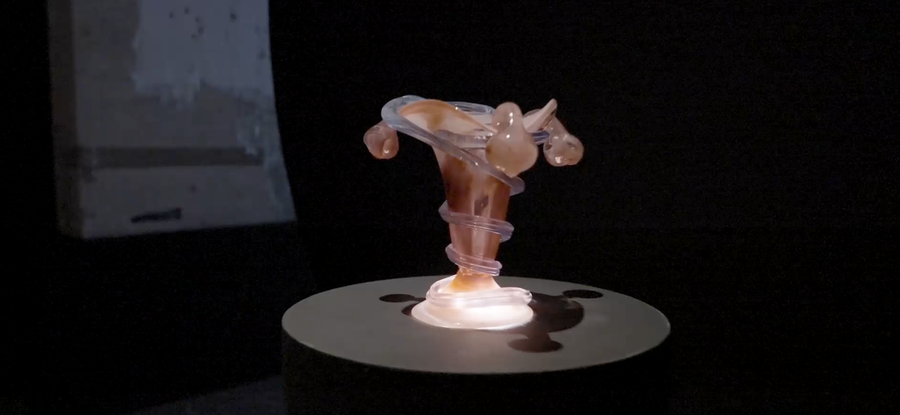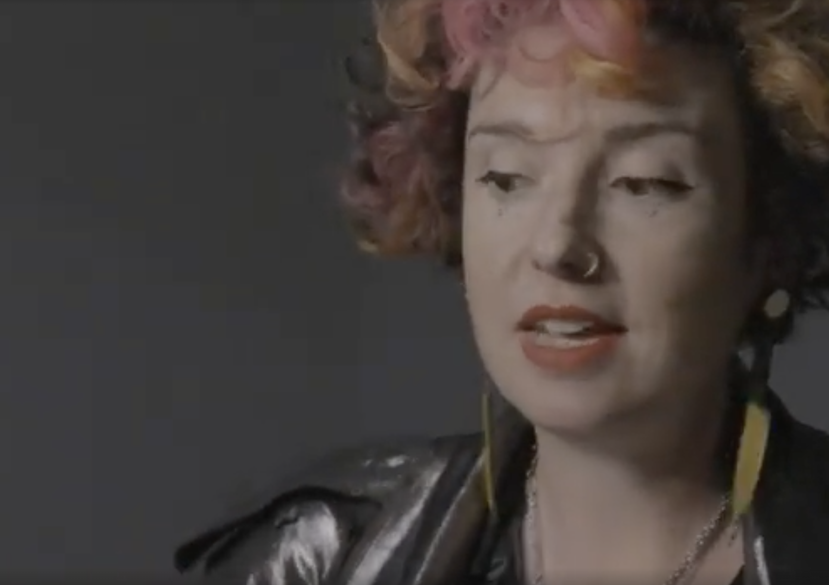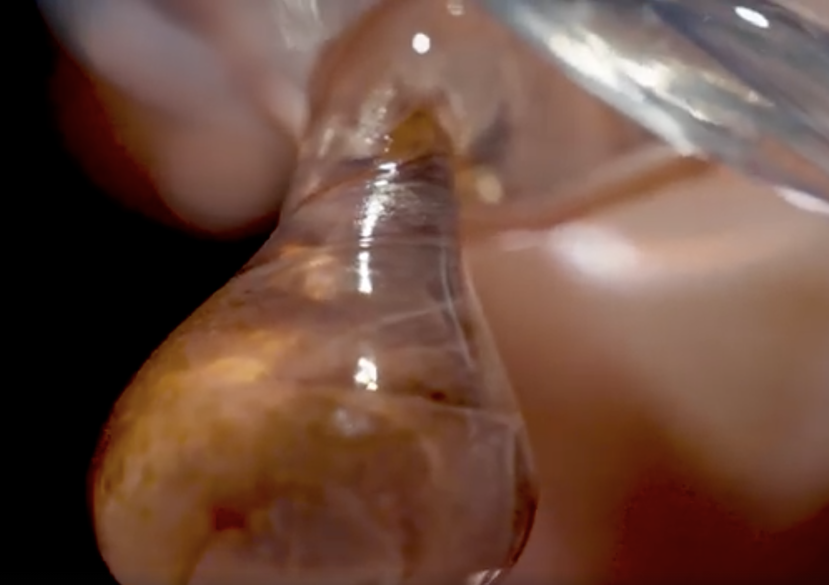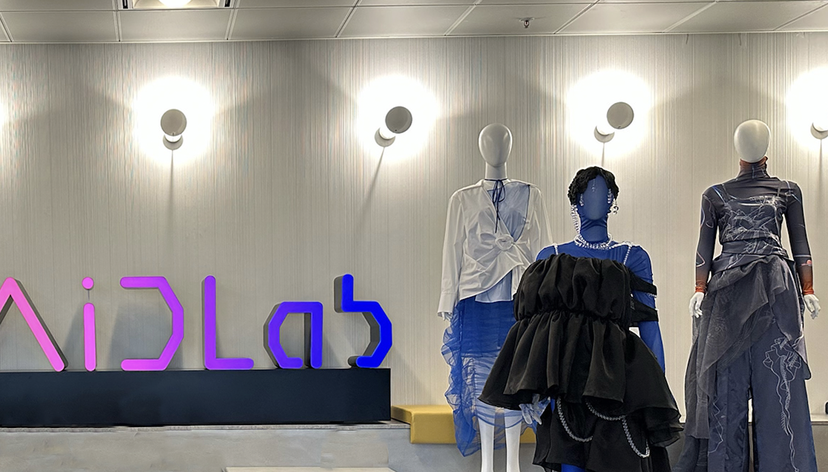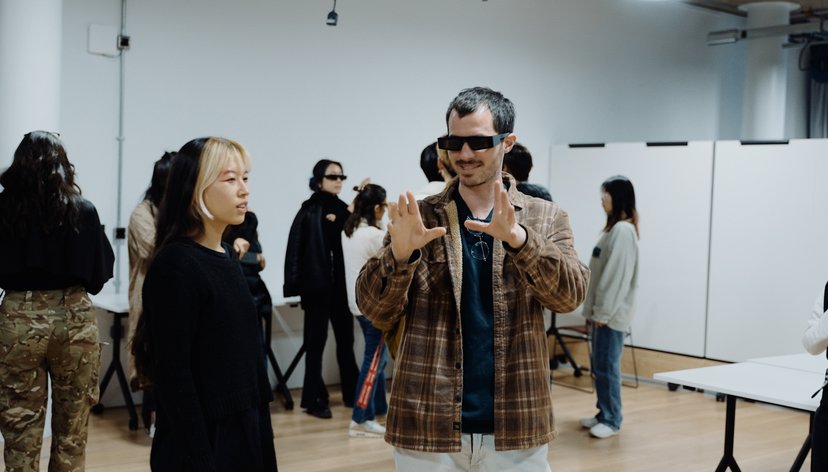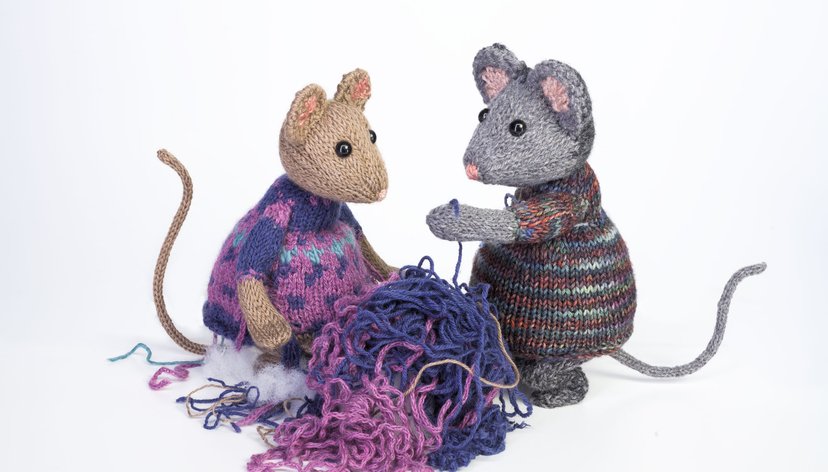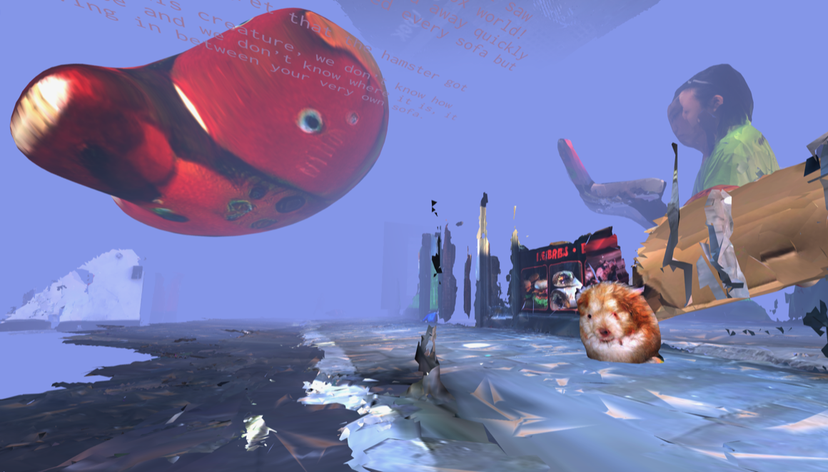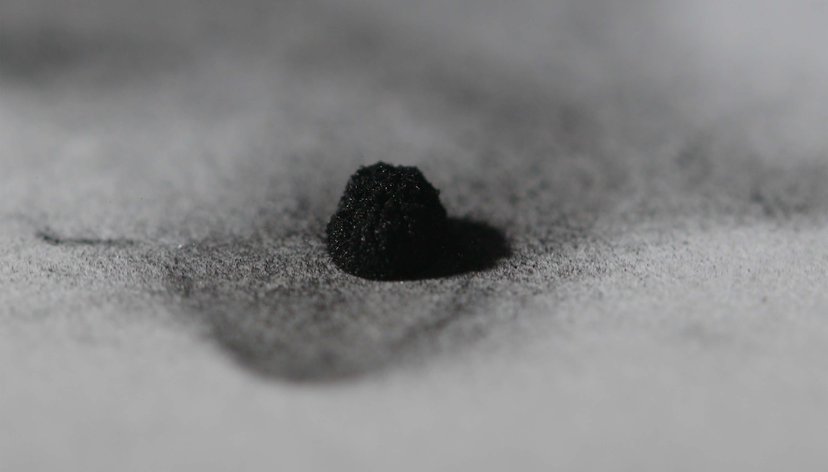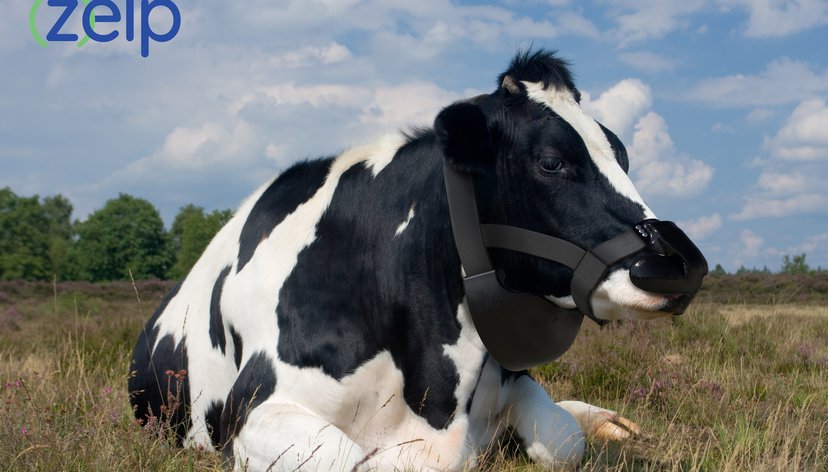
This research project uses new science to grow and nurture a collaborative uterus from menstrual blood of multiple women, trans, queer and non binary people.
At a glance
- This project seeks to call into being a future of collective, cooperative reproduction by growing a uterus – or a small part of one – from the menstrual blood of multiple women, trans, queer and non binary people. Furthermore, the project will seek to incorporate ‘male’ cells into this organ of radical care.
- This is completely new science, and if successful it will be a world-first, contributing to the field of reproductive technology and furthering our understanding of human fertility.
- Charlotte has been collaborating with Susana and Atelier NL to design and develop a chalice in which the collaborative uterus can grow and be exhibited.
- Patricia (also a published and celebrated poet in Argentina) has written a new poetic work that explores the idea of a collective uterus, decidua and endometrial cells.
- In October 2022 Charlotte and Patricia mounted an expedition to Tierra Del Fuego (the literal “end of the world” in Patagonia, and conceptual home of the project). Footage from this trip will form the video installation.
- Patricia’s home and laboratory are in Argentina, which legalised abortion in Decmber 2020. Making the work in this context – in which the most basic bodily autonomy was only so recently granted to women – is important to the project.
- Organ of Radical Care aims to be what Donna Haraway describes as “split and contradictory”; to interrogate positions and be accountable; to generate “rational conversations and fantastic imaginings that change history.”
Key details
Gallery
More information
Our approach
In the Baroque Technopatriarchy: Reproduction, Paul Preciado asks
“Is it possible to depatriarchalize and decolonize the institutions of family and nation-state? Is there an equitable way to govern the use of reproductive fluids (semen, milk, blood), organs (uterus), cells (ovules, spermatozoids), and genetic materials? Is it possible to redistribute them, or even to collectivize them? We must apply the principle of cultural recombination to our strategies of producing and reproducing life, so as to transform our technologies of power and (politically) mutate.”
Organ of Radical Care seeks to call into being a future of collective, cooperative reproduction by growing a uterus – or a small part of one – from the menstrual blood of multiple women, trans, queer and non binary people. Furthermore, the project will seek to incorporate ‘male’ cells into this organ of radical care. Preciado:
“The very survival of life on earth depends on the invention of cooperative and symbiotic technologies of production and reproduction.”
Charlotte and Patricia are just starting out on their journey to create a ‘decolonised’ uterus. The project is conceived in multiple parts. In the lab, Charlotte and Patricia are pursuing innovative scientific research to grow a collective colony of endometrial cells and differentiate them into decidual cells that could potentially host a fertilised egg. Furthermore Charlotte and Patricia’s aim is to also incorporate ‘male’ cells into their uterus by co-culturing ‘male’ fibroblasts onto stem niches and (hopefully) transdifferentiation them into endometrial cells. Part of the project will be engaging with the ethical questions this raises. Charlotte and Patricia have secured collaboration with Prof. Lopes’ lab at the Leiden University Medical Centre to provide additional expertise, and it is anticipated that one of Patricia’s team will conduct a fellowship in Leiden as part of the project. This is completely new science, and if they are successful it will be a world-first, contributing to the field of reproductive technology and furthering our understanding of human fertility.
The project is conceived as a form of creative activism; undermining patriarchal norms by collecting, using and celebrating the menstrual blood of multiple women, trans, queer and non-binary people. Furthermore, Patricia’s home and laboratory are in Argentina, which legalised abortion in December 2020. Making the work in this context – in which the most basic bodily autonomy was only so recently granted to women – is important to the project. Organ of Radical Care aims to be what Donna Haraway describes as “split and contradictory”; to interrogate positions and be accountable; to generate “rational conversations and fantastic imaginings that change history.” Haraway continues:
"Science becomes the myth, not of what escapes human agency and responsibility… But rather, of accountability and responsibility for translations and solidarites linking the cacophonous visions and visionary voices that characterise the knowledges of the subjugated.”
Project outcomes
Chalice
The project will be realised through sculpture, poetry and video / audio installation. Charlotte, in collaboration with Atelier NL, has designed a glass chalice in which the collaborative uterus can grow and be exhibited. The interior of this object – both sculpture and scientific apparatus – is warm, nurturing and spongy; keeping the collective colony of endometrial cells alive for exhibition. The first iteration of the chalice was exhibited at MU Gallery Eindhoven in October 2022, and a second iteration is being tested and experimented with in collaboration with Anastasia Bragina at the ARS Electronica laboratory in January 2023, where we hope to test how long the cells can be kept alive and also create some El 3D visualisations.
Film
Charlotte will produce a multi channel film piece exploring the themes of the project and documenting the lab experimentation. In October 2022 Charlotte and Patricia mounted an expedition to Tierra Del Fuego (the literal “end of the world” in Patagonia, and conceptual home of the project). Footage from this trip will form the video piece.
Poetry
Alongside working in her lab to develop the collective womb, Patricia has written a new poetic work that explores the idea of a collective uterus, decidua and endometrial cells. The poem will be incorporated into a performance and piece of sound art. Link to poem as exhibited at MU hybrid Arthouse: https://drive.google.com/file/d/1sP0yDfKt0QRMceR7Ixpo6zJtFEtoSGHc/view?usp=sharing
Audio
The poem will be incorporated into a piece of sound art made in collaboration with musicians. We anticipate using recordings of the poem with the voices of multiple women, trans, queer and non-binary people.
Dissemination
The project was exhibited at MU hybrid Arthouse in the Netherlands in September to November 2022 and during Dutch Design Week, receiving hundreds of thousands of visitors.
The project was presented during the ‘Night at the Museum’ series of events in Buenos Aires in October 2022
The Project was awarded a residency by the European Media Arts Platform (EMAP) at ARS Electronica in Linz. The project was presented through EMAP in Zagreb in June 2022. It will be exhibited in Linz in January 2023 and September 2023 at the ARS Electronica festival.
Partners
Dr Patricia Saragüeta has a degree and PhD in Chemistry. She is a CONICET Researcher and Professor at the Department of Physiology and Molecular and Cellular Biology, School of Exact and Natural Sciences, UBA. She is a scientist and artist, interested in genomics, cellular and molecular biology. She works for the meeting of art and science both in her work and at the institutional level. She has published three books of poetry, several articles and many essays.
Professor Susana Chuva de Sousa Lopes has a PhD from the University Utrecht (Hubrecht Institute). In the last five years, her group at the Leiden University Medical Centre has focused on investigating the developmental trajectories of human organs and tissues, with focus on the urogenital system. The Chuva group is among the first to combine single-cell transcriptomics with human exome sequencing. More recently, The Chuva group have characterised the human adult ovary at the single-cell level.
The project was born from a meeting between Patricia and Charlotte in Patagonia in 2019 organised by the British Council. They went on to develop some initial ideas around the future of reproduction through a British Council R&D grant. Covid-19 and Charlotte having a baby scuppered these plans and it was not until 2021 that the collaborators picked up their embryonic thoughts and started developing the idea of a collaborative uterus. Working in Argentina is important to the project, however it also presents some challenges. Charlotte brought in Susana from the Leiden University Medical Centre as a collaborator to help with some of the scientific hurdles.
The project really kicked off when Charlotte was awarded the EMAP residency at ARS Electronica. This provided the initial funding to get the project started. Exhibition and support from MU gallery followed after this. Charlotte was awarded RKEI funding from the RCA to visit Patricia in Argentina in October 2022 and work on gaining ethical approval to take the project forward, with an eye to applying for a larger research grant in the UK. Ethical approval in Argentina is complex. Many people are opposed to abortion and other reproductive technologies that they see as undermining the “sanctity of life”. This challenge is becoming a significant and meaningful part of the project, and although presenting difficulties, this is to some degree why the team are making the project in Argentina.
Scientifically, Charlotte, Patricia and Susana have developed a number of protocols for the various stages of the project. The first of these will be tested in January 2023 in Linz when the team will try and seed a collective colony of uterus cells in the chalice designed for the project.
Team
Get in touch
Contact Project Lead Charlotte Jarvis for further information.
[email protected]

